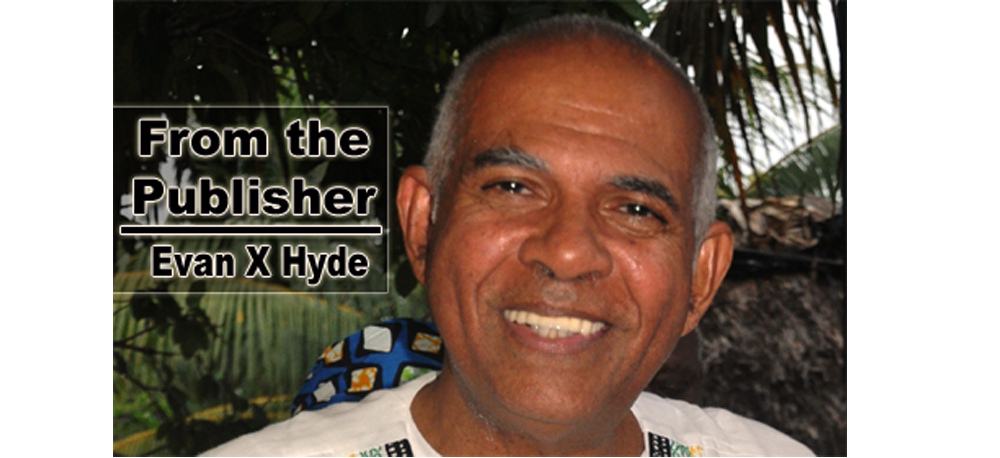As the eldest child (three sons, one daughter) of his parents (Mr. and Mrs. Rafael Fonseca), Ralph Fonseca returned to Belize from Canada with his wife and only son, Ralphie, after his father, Rafael “Falo” Fonseca, Premier George Price’s revered Financial Secretary, was killed in a road traffic accident near Belmopan in late December of 1979. One presumes Ralph was the executor of his father’s will.
Belize’s leading industrial business magnate, the late Sir Barry Bowen, soon hired Ralph as the chief executive of the Belize Brewing Company (Belikin) section of his business empire.
Sometime in early 1984, however, Barry fired Ralph after a dispute involving a loan from a Panamanian bank which Ralph had negotiated for Mr. Bowen.
In the aftermath of that firing, Ralph emerged as a leading figure in the executive section of the ruling People’s United Party (PUP), and the indications are that he became, if he had not been before, close friends with attorney Said Musa, who was the PUP area representative for the Fort George constituency.
The number of electoral divisions in Belize had been increased by the ruling PUP from 18 to 28 sometime after the 1979 general election. Around the middle of 1984, with a general election scheduled for December of that year, Ralph was announced to be the PUP candidate for the new Queen’s Square constituency.
The Collet division, previously the largest in the country, had been divided into three — Collet, Queen’s Square, and Lake Independence.
The Opposition United Democratic Party (UDP) had already held their convention to choose their Collet candidate when the redistricting split the area into three. Michael Finnegan, who had been campaign manager for the late Ken Tillett in Tillett’s losing 1974 and 1979 Collet campaigns versus the PUP’s Harry Courtenay, advised his good friend, Dean Barrow, who had defeated Hubert Elrington and Frank Lizama in the UDP’s Collet convention, to choose Queen’s Square as his division, Barrow having been given first choice of the three constituencies. Finnegan knew that Queen’s Square was an area which contained many public officer families and was basically pro-UDP.
It would appear that Barrow, who had topped the polls in the 1983 Belize City Council election, benefited from huge financial support from Barry Bowen, who wanted to teach Ralph a lesson. So it was that Barrow defeated Ralph by a large margin in Queen’s Square in December of 1984.
Now, when the PUP returned to power in September of 1989 (after being defeated in 1984), the PUP were in a bit of a pickle, because, it appears, the nominal Minister of Finance, party leader Rt. Hon. George Price, had become a septuagenarian, and could not handle the Finance Ministry’s workload. The indications are that Ralph Fonseca, who had great computer skills, and who had not run in the 1989 general election, was appointed as a senator in order to sit in Cabinet and run the Finance Ministry in fact. But the Belize Constitution says that only an elected area representative can be the Minister of Finance, so the PUP had to find a safe seat for Ralph so that he could become the de jure Minister of Finance.
The PUP had, at some point, decided to form a new constituency, Belize Rural Central, in which they would run Mr. Price’s attorney niece, Dolores Balderamos Garcia. Now Mr. Price and Mr. Musa called on Dolores to give up the constituency so that Ralph could be the candidate.
Ralph ran for Belize Rural Central in June of 1993 with a ton of money, millions which Cabinet had voted to allocate to refurbish the old Civic Center, which had proven too small (1700 capacity) to accommodate the explosive growth of semi-pro basketball in 1992. It appears that much of the Civic money was spent in Rural Central to guarantee Ralph’s election. Ralph campaigned with cash. He barely knew the voters personally, but he won by almost a thousand votes in a general election held fifteen months before it was scheduled, for the specific purpose, it would seem, of having him elected to the House.
The victims of this diversion of funds were Southside youth and the semi-pro basketball industry, which had appeared to be a sure success industry after the 1992 euphoria. The “new” Civic’s air conditioning did not work. The place became hot and stifling.
Meanwhile, the newly elected UDP began to wage a weekly newspaper campaign against semi-pro basketball, apparently because the championship team, Kremandala Raiders, was owned by Evan X Hyde, who had been in a personal vendetta with UDP Leader, the late Dr. Manuel Esquivel, from 1987, when Esquivel victimized Rufus X.
Semi-pro began to struggle because the facility was an oven. Semi-pro basketball should not have failed. It should not even have staggered. But this is how discrimination works in Belize, beneath the surface. This is how discrimination works whenever Southside youth stand to benefit from an initiative.

